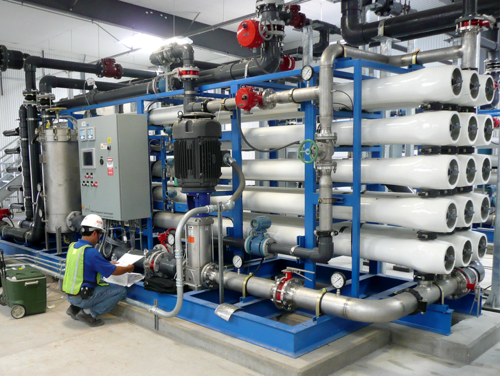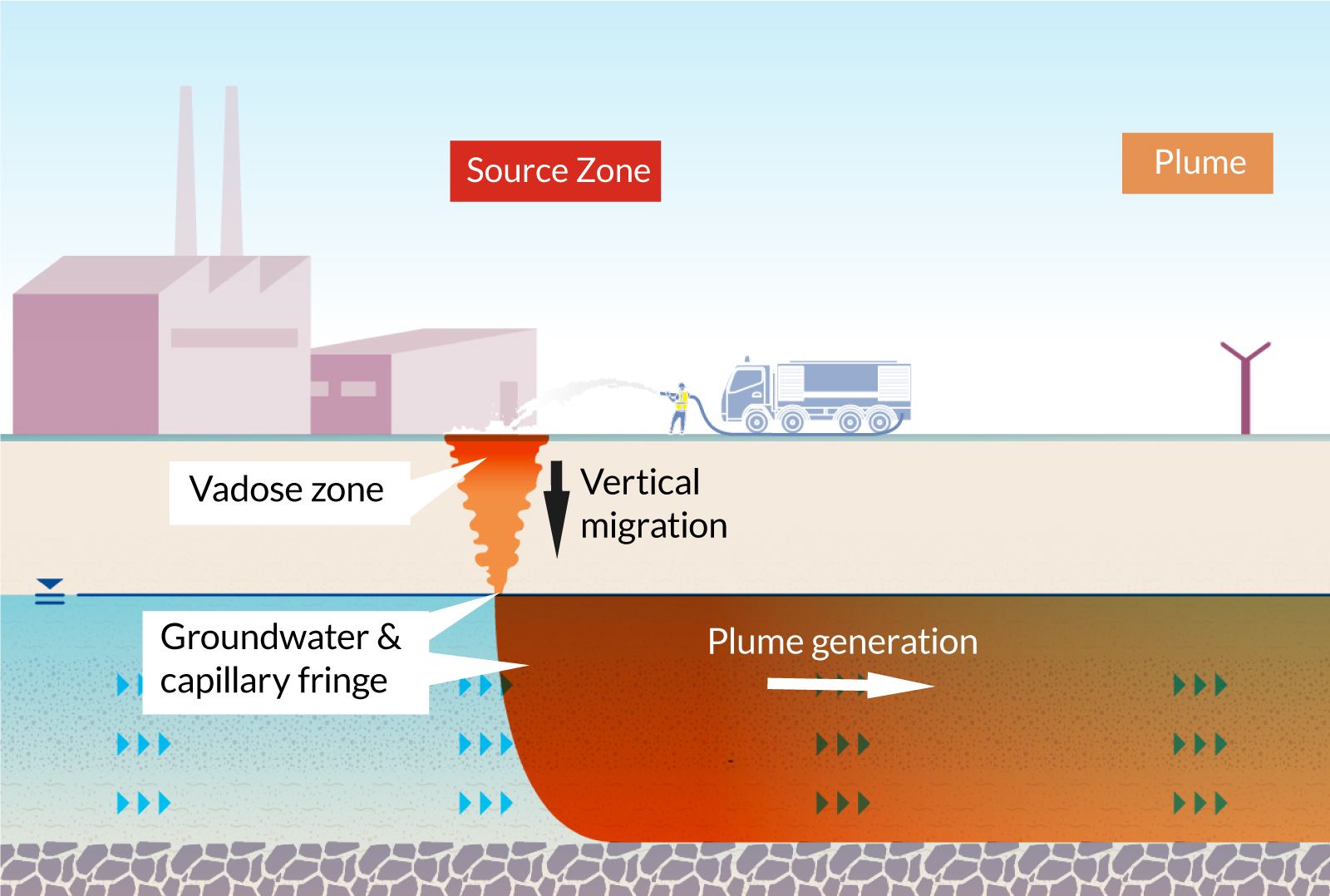The Importance of PFAS Treatment in Restoring Contaminated Water
The Importance of PFAS Treatment in Restoring Contaminated Water
Blog Article
How PFAS Treatment Guarantees Clean and Sustainable Water
The existence of PFAS, commonly called "forever chemicals," positions substantial challenges to water high quality and public wellness. Advanced therapy modern technologies, including activated carbon adsorption and membrane purification, have actually emerged as effective options to reduce these impurities. By utilizing these approaches, neighborhoods can not only accomplish cleaner water yet additionally foster sustainable methods that protect ecosystems. The implications of these treatments expand beyond instant health and wellness benefits; they raise crucial concerns concerning long-term water monitoring techniques that need to be dealt with to ensure a durable future. What does this mean for our method to water sustainability?

Understanding PFAS Contamination
PFAS, or per- and polyfluoroalkyl materials, have actually emerged as a considerable ecological problem as a result of their prevalent prevalence and persistence in the environment. These synthetic chemicals have been made use of in numerous industrial applications and consumer items, including non-stick kitchenware, water resistant garments, and food product packaging, as a result of their unique residential or commercial properties such as water and grease resistance.
The contamination of soil and water sources by PFAS takes place largely through commercial discharges, firefighting foam use, and leaching from land fills. pfas management. Once launched, these substances are resistant to deterioration, resulting in their buildup in the setting. This perseverance increases crucial issues, as PFAS can take a trip fars away through groundwater and surface water supply, influencing drinking water materials and communities

Health Risks of PFAS
The persistence of PFAS in the atmosphere elevates considerable health and wellness concerns for individuals revealed to these substances. Recognized as "permanently chemicals," PFAS do not break down easily and can collect in bodies gradually. Study has connected PFAS direct exposure to numerous negative wellness results, including body immune system disorder, liver damage, and increased risk of certain cancers - pfas management. Especially, researches have revealed elevated cholesterol degrees and prospective effect on reproductive and developmental wellness, especially in expectant people and babies.
The ubiquity of PFAS in consumer products, such as non-stick kitchenware, water-repellent fabrics, and food packaging, more amplifies the danger of direct exposure. Consuming alcohol water polluted with PFAS is a substantial concern, as these chemicals can seep right into groundwater sources. Prone populations, including kids and those living near industrial sites, may deal with elevated risks as a result of their developing systems and potential for higher exposure degrees.
As recognition of these wellness dangers remains to expand, regulative agencies are beginning to develop standards for PFAS degrees in alcohol consumption water. Public wellness initiatives are important to alleviate exposure and secure neighborhoods from the long-term results of these unsafe compounds.

Ingenious Therapy Technologies
Exactly how can we efficiently deal with the challenges postured by PFAS contamination in water resources? Ingenious treatment technologies are emerging as essential options in the quest for clean water. These techniques concentrate on the removal or destruction of per- and polyfluoroalkyl materials (PFAS), which are notorious for their perseverance in the environment.
One appealing approach is adsorption using innovative products, such as activated carbon and ion exchange resins. These materials have shown efficiency in catching PFAS particles this website from water. One more significant modern technology is membrane layer filtering, which makes use of nanofiltration and turn around osmosis to different pollutants at the molecular degree, hence giving an obstacle against PFAS.
Additionally, advanced oxidation processes (AOPs) utilize solid oxidants to break down PFAS substances right into harmless by-products. This technique is especially efficient for dealing with extremely infected water sources. Bioremediation techniques, using certain microorganisms, are likewise being checked out to degrade PFAS.
As study proceeds, hybrid systems that integrate multiple modern technologies might offer improved performance, dealing with the complexities of PFAS contamination. The development and application of these ingenious therapy modern technologies are vital steps toward guaranteeing the safety and sustainability of our water sources.
Benefits of Effective PFAS Therapy
Successfully dealing with PFAS contamination in water resources considerably improves public health and wellness and ecological safety. PFAS, frequently referred to as "permanently chemicals," are resistant to deterioration and can gather in the body, resulting in major health dangers such as cancer cells, liver damage, and immune system disorder. By carrying out reliable therapy methods, communities can lower exposure to these unsafe substances, inevitably boosting the wellness end results of their populaces.
Furthermore, effective PFAS therapy adds to the conservation of regional ecological communities. Contaminated water can detrimentally influence aquatic life and interrupt the fragile balance of neighborhood environments. By guaranteeing tidy water, treatment procedures secure biodiversity and preserve environmental stability.
Furthermore, effective PFAS removal can cultivate public confidence in water top quality. When neighborhoods are assured that their drinking water is devoid of harmful pollutants, it promotes a feeling of safety and security and health. This trust fund is vital for neighborhood engagement and support for recurring water monitoring campaigns.
Future of Water Sustainability
In the middle of expanding concerns concerning water quality and shortage, the future of water sustainability rests on innovative strategies and joint efforts. As neighborhoods encounter the looming dangers of pollutants like PFAS, the growth of innovative therapy innovations is necessary. These innovations not only concentrate on the elimination of damaging substances however also promote the reuse and recycling of water, therefore lowering general demand.
Additionally, efficient click for info water administration plays an important function in making sure sustainable methods. Policymakers have to integrate clinical research study with governing frameworks to develop clear standards for water usage and treatment. Stakeholder involvement, including local neighborhoods and sectors, cultivates a feeling of common responsibility and encourages lasting techniques across various industries.
Financial investment in framework is also essential; updating aging systems to integrate contemporary filtration and filtration techniques can considerably improve water high quality. Welcoming environment-friendly technologies, such as all-natural filtering systems, can give green services.
Eventually, the future of water sustainability exists in an all natural method that incorporates technology, plan, and neighborhood involvement. By prioritizing these aspects, we can protect our water sources for generations ahead, making certain tidy and lasting water for all.
Final Thought
In verdict, the reliable treatment of PFAS is essential for making certain clean and you could look here sustainable water. Eventually, durable PFAS therapy strategies contribute to long-term durability in water management, promoting public trust fund in water high quality and promoting sustainable techniques.
Report this page